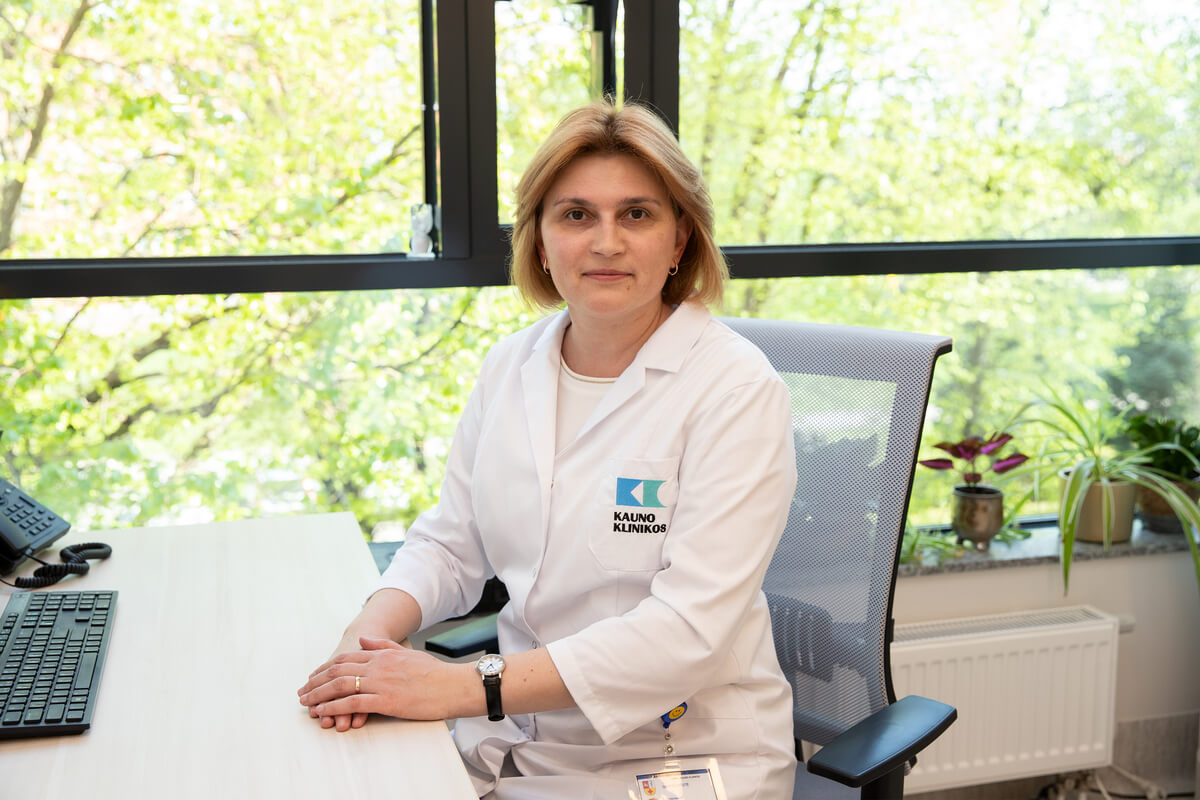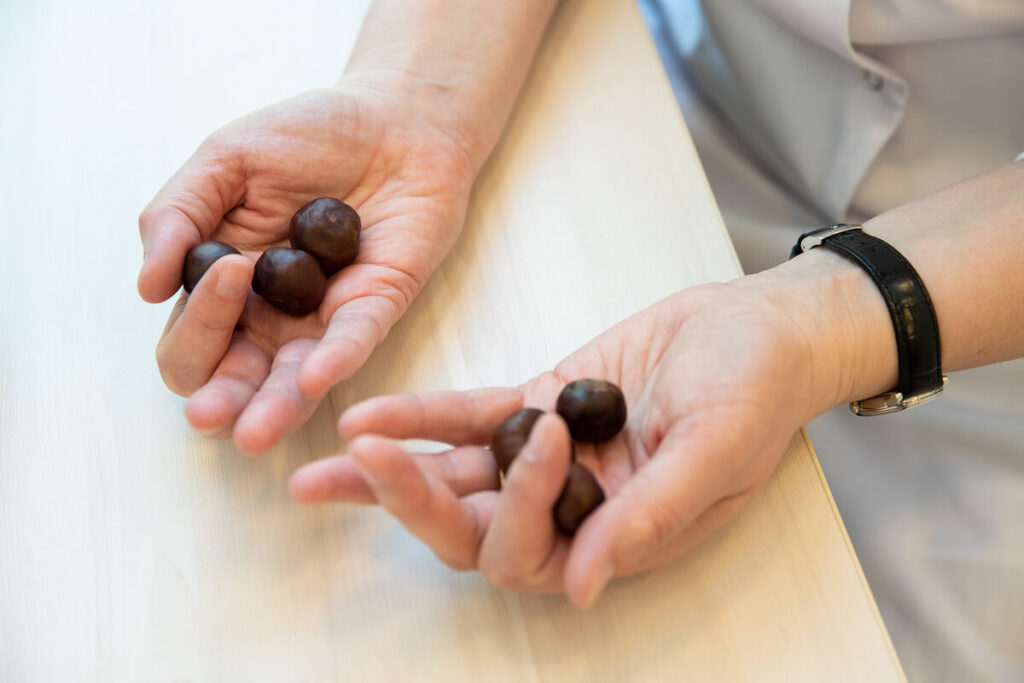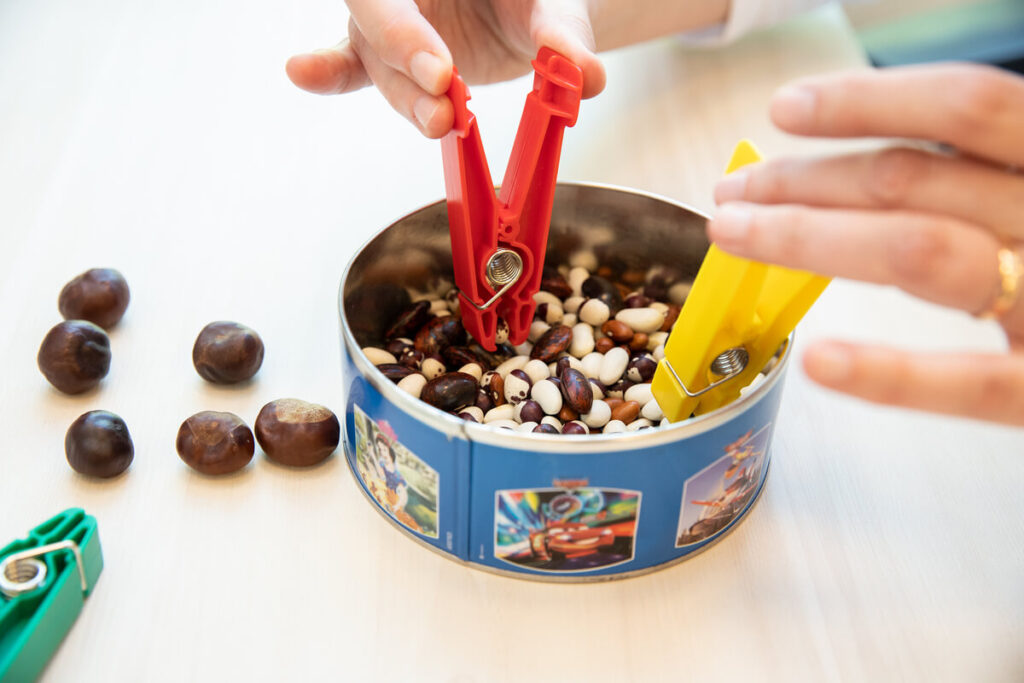A Dream Career Begins with a Bold Step: From Occupational Therapy Studies at LSMU to a Role That Combines Experience and Vocation

Three years ago, Orinta Eitutė completed her occupational therapy studies at the Lithuanian University of Health Sciences (LSMU). As she explains, she was an unconventional student who graduated at the age of 49. Having originally pursued a career in a completely different field, she now shares her story to encourage others: it is never too late to follow your dreams.
Medicine as a Long-Standing Dream
Orinta’s journey to becoming an occupational therapist was long, but every turn in her career translated into valuable skills.
“Back in my 11th year at high school, I had the aspiration to study medicine, but life took me in a different direction. I became interested in Chinese medicine and studied it both in Lithuania and the United States.

I established my own company where I continue to conduct training in Chinese medicine. Eastern medicine helped me understand why my children were falling ill, and acupressure enabled me to help them. However, having started holding workshops, I realised that my knowledge in Western medicine was somewhat missing. I wanted to understand what was common between the Eastern and Western medicine. After all, both have the same goal – human health”, she explains.
It was important to her that her new profession saw the person as a whole.
“That was how I discovered occupational therapy, which nurtures and encourages a person’s ability to perform meaningful activities. When misfortune strikes – be it trauma or illness – the ability to carry out usual, purposeful actions is disrupted, and life changes. One feels unwell not only because of pain but also due to the inability to live a normal life. Often, one becomes dependent on others, give up hobbies, and life becomes bitter,” the specialist observes.
At the age of 45, Orinta chose to study at the Faculty of Nursing at the Lithuanian University of Health Sciences (LSMU) and, as she says, became a “student with experience”. When asked why she chose this particular university, she light-heartedly reveals that the university’s location made it hard to forget about it.
“I believe that a university specialising solely in health sciences has a greater advantage than a university where a medical faculty is just one among many. LSMU has a substantial scientific and practical base. When you are a working person, commuting to Vilnius is not an option. Moreover, I live near the Kauno Klinikos campus, and passing by it daily, I often thought that it would’ve been great for it to become my Alma Mater,” she recalls.
Bridging the Eastern and Western Wisdom
Although the path to fulfilling her dream took nearly twenty years, she is now pleased with the results and the ability to combine knowledge acquired in various fields in her work. Studies at LSMU provided her not only with an education in health sciences but also with self-confidence. Thanks to the close-knit study community, Orinta successfully found employment just six months after graduation.
Occupational therapy is still a relatively new medical field in Lithuania, and part of the public is unfamiliar with it.
“Before I had my occupational therapist diploma, I would sometimes hear others saying: ‘She’s just a masseuse; what does she know about medicine?’ Now, my word carries more weight. Prospective occupational therapists would often choose to work with children, but I was interested in adult occupational therapy. So, I did most of my practice in this area.
It’s great that I can combine the knowledge gained at university with that acquired at different stages of life. In my work as an occupational therapist, I use methods based on the latest scientific research and can also apply ancient Eastern wisdom. This way, I can help a person comprehensively,” the occupational therapist rejoices.
Timeless Techniques at Work
The occupational therapist assists patients in addressing various issues arising from musculoskeletal disorders, brain function impairments, and even helps in training the olfactory function. The latter problem became particularly relevant after the COVID-19 pandemic.
“The topic of my bachelor’s thesis was related to training impaired sense of smell. In the post-pandemic period, many people complained of olfactory dysfunctions. I chose this topic because I’ve been interested in essential oils and aromatherapy for over 10 years. This helped me combine occupational therapy with another area of interest and assist people in rediscovering the world of scents,” she shares.

The main part of an occupational therapist’s job is to help a person restore functions impaired by illness or trauma. If that is not possible, especially in cases of neurodegenerative diseases, the goal is to maintain existing functions for as long as possible. If even that isn’t feasible, the aim is to find ways to help the person maintain the maximum possible independence for as long as possible.
For instance, if someone has advanced arthritis and cannot fully clench their fist or grasp a spoon or pen, they are offered a solution – to thicken the handles of the tools they use, making it possible to grip and use them. Each person’s physical performance issues are examined in detail, and the plan to solve them together is put together.
Patients also seek help for back pain, as it prevents them from properly performing daily tasks: putting on shoes, socks, washing floors, picking up items from the ground. Very often, the cause of back pain is incorrect movements.
“Occupational therapists are the only rehabilitation specialists working with fine motor skills. Meanwhile, fine motor skills are crucial for almost all actions. We suggest simple tasks to train fingers: attaching clips or sorting beans. When given such tasks, patients sometimes get annoyed, but as they say, genius lies in simplicity. Seemingly simple actions improve finger dexterity, strength, coordination, and simultaneously train the brain,” the specialist explains.
Age is No Barrier to Pursuing Dreams
Recalling the start of her studies, which she began at the age of 45, Orinta admits she felt somewhat uneasy. However, she soon realised that age is just a number.
“The students I studied with were my son’s age – half my age. Working on group assignments and assessments with these young people, I saw how friendly they were and how easily they communicated. The teachers also contributed to positive experience. The occupational therapy community isn’t very large. We, occupational therapy students, enjoyed being part of it. I received answers to all my questions – and as an adult student, I had quite a few. I always felt the sincere desire of the teachers to help,” she says.
According to her, lecturers aimed to impart knowledge to students even when the world was turning upside down, and no one knew how learning or work would continue – this was the onset of the global coronavirus pandemic.
“Our teacher proposed an unscheduled urgent meeting to show us in person how to select assistive mobility devices – canes, crutches, wheelchairs – for patients and how to use them properly.”
“I always say: ‘If you have a desire to study health sciences – go for it. You’ll never know if it’s your field until you try. I wish you the courage to accept challenges and pursue your dreams – even if you’re nearing fifty. I’m living proof of that,'” concludes occupational therapist Orinta Eitutė with a smile.
Top reasons to choose LSMU
Exceptional study opportunities
- LSMU is the only university offering 8 study programmes taught using a unique integrated problem-based learning method, and studies are conducted in cycles (modules).
- The medical study programme is renowned for its advanced teaching methods.
- Knowledge and practical experience are shared by leading specialists in various fields, practising clinicians, and scientists.
- We place particular focus on strong teamwork skills.
- Hybrid learning classrooms and medical simulation centres are used.
- The LSMU library is extremely student-friendly and operates 24 hours a day.
Excellent practical preparation – one of the greatest advantages of studying at LSMU
- Extensive practical training at Kauno Klinikos, the LSMU pharmacy, training laboratories, and advanced companies.
- Students can choose additional internships as early as in their 1st year at the University.
Multicultural environment
- LSMU is one of the most international universities in Lithuania, offering learning in a multicultural environment, with opportunities for internship and traineeship at top European universities.
- Excellent employment opportunities – LSMU graduates are highly sought after in the job market: about 90% find employment within the first year after graduation.
Versatile professional landscape
- Professional careers can be developed in the desired direction – science, practice, or business.
- After completing medical studies, one can choose from about 70 subspecialties; pharmacy graduates can become not only pharmacists but also scientists, working in pharmaceutical companies.
Active leisure
- Our student union is very strong and pro-actively represents student interests.
- Extremely wide-ranging social, artistic, sports, and leisure activities are offered.
For more information about this study programme, please follow this link: https://lsmu.lt/en/admission/undergraduate-studies/occupational-therapy/
